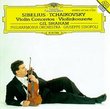| All Artists: Tomas de Torrejon y Velasco, Caitriona O'Leary, Douglas Nasrawi, Ellen L. Hargis, Gloria Banditelli, Jennie Cassidy, Josep Cabre, Judith Malafronte, Nancy Mayer, Paivi Jarvio, Santina Tomasello, Steve Player Title: Torrejon y Velasco: La púrpura de la rosa / Lawrence-King Members Wishing: 0 Total Copies: 0 Label: Bmg Int'l Release Date: 1/11/2000 Album Type: Import Genre: Classical Styles: Opera & Classical Vocal, Historical Periods, Baroque (c.1600-1750) Number of Discs: 2 SwapaCD Credits: 2 UPC: 054727735523 |
Search - Tomas de Torrejon y Velasco, Caitriona O'Leary, Douglas Nasrawi :: Torrejon y Velasco: La púrpura de la rosa / Lawrence-King
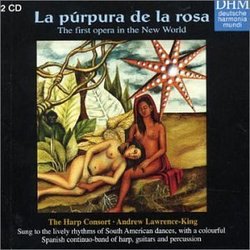 | Tomas de Torrejon y Velasco, Caitriona O'Leary, Douglas Nasrawi Torrejon y Velasco: La púrpura de la rosa / Lawrence-King Genre: Classical
|
Larger Image |
CD DetailsSimilar CDs
Similarly Requested CDs
|
CD ReviewsNow for something completely different F. Behrens | Keene, NH USA | 01/25/2000 (5 out of 5 stars) "Would you believe that a new release from Deutsche Harmonia Mundi offers us (1) the first known opera to be done in the New World and (2) a work of surpassing beauty? All too often works of great historical interest will not appeal to a large segment of the public, but here we have an exception. (DHM 05472 77355 2) was first performed in 1701 in Lima, Peru to portray by a comparison of allegories "the moral of love triumphing over jealousy, of harmony between the heavens and the earth" and "harmony between the Old World (Europe) and the New (America)" [quoted from the press release].To do so, the story of Venus and Adonis is performed, followed by a second part about the "Vengeance of Mars." All very Baroque, all very mythological and loaded with symbols immediately grasped by the cultured audience who had just raped an entire continent in order to celebrate the "harmony." At first blush, with no hint at what you are hearing, you might suspect Monteverdi was composing to a Spanish text. Long passages of lyrical recite are punctuated by dances noble and peasant-like while high myth is mixed with humorous incidents from the lower classes. The story is the usual Baroque complex of old stories changed to meet the Political Correctness of the times, and you can follow it with a large magnifying glass since the complete text (in four languages no less) is in a print about the size of a hydrogen atom. The composer is Tomas de Torrejon y Velasco, the librettist Pedro Calderon de la Barca, and both were thorough professionals. In this recording the Harp Consort under Andrew Lawrence-King certainly captures both the Spanishness and the timeless fantasy of the score (just listen to those trumpets sounding like guitars!). As with most Baroque operas, the female voice predominates and even Mars is a trouser role here. So we have Judith Malafronte (Venus), Ellen Hargis (Adonis), Maria del Mar Fernandez-Doval (Mars), and a fine supporting cast that have prompted me to play this set over and over. The people at BMG are to be thanked for releasing this superlative and unusual offering." Exuberant and bright gaios33 | Berkeley, CA | 04/13/2001 (5 out of 5 stars) "I must add a comment: Maria del Mar Fernandez Doval is absolutely magnetic! Her voice is rich and dark, and full of fire and passion--I have never heard a voice like hers before; it fits the repertoire like a glove. I can't recommend this recording enough, and her voice alone makes it worth the purchase! ALL the vocals are amazing, in fact, and the choice of cast is flawless... (I only wish that Montserrat Figueras had gotten involved in this project. ;)) Shades of interpretation are ever-changing and never make for boring listening, despite the predominance of recitative and the lack of real arias, strange to those unaccostumed to this style. The rhythms are incredible, gently swaying or vigorously jumping, and the chorus floats beautifully over the earthiness of the strumming guitars. Overall, this recording is an excellent embodiment of contrasts and colors of emotions, of sol y sombra." Thanks to BMG for this outstanding CD! Can we have another? Mary Hodder | Emeryville, CA USA | 10/07/2000 (5 out of 5 stars) "It's opera, Spanish, baroque (1701), old-world Europe, new-world Americas and very unusual, but outstanding, and worth every cent. I've searched high and low but cannot find anything else like it, on Amazon or any other music venue. The liner notebook is superb and more thorough than almost any other complement to other recordings. But the notes are not necessary to enjoy this recording. While it is totally accessible on the first listen, it continues to reveal delicate nuances on the tenth listen. The first five days I owned it, I listened five times. Frank Behrens gives more detailed comments that I won't repeat, but he's correct in his assessment of this sublime piece."
|

 Track Listings (13) - Disc #1
Track Listings (13) - Disc #1



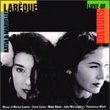
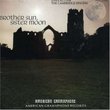


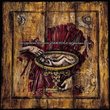


![Across The Universe [Deluxe Edition]](https://nationalbookswap.com/cd//m/51/1251/1241251.jpg)

